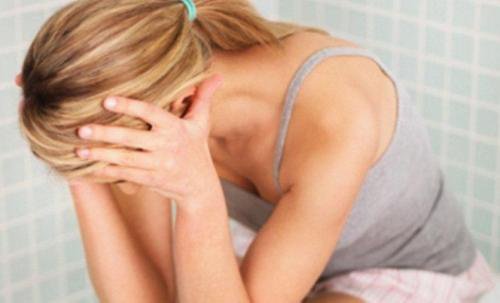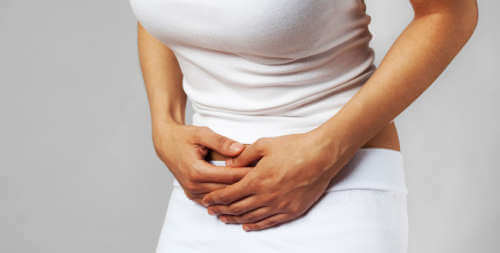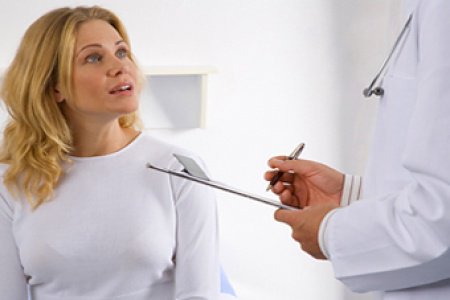Is It Normal to Go to the Bathroom Often at Night?


Written and verified by psychologist Valeria Sabater
If you have to go to the bathroom often at night, it may be a sign of an illness called nocturia. Although it is especially common among older people, young people can also suffer from it due to specific health problems.
Today we’d like to speak about this very common “nighttime disorder” that makes you have to go to the bathroom often at night, and explain its possible causes.
As always, if you have any questions or problems, don’t hesitate to consult with your doctor.
Why do you have the urge to urinate during the night?

Doctors tell us that this problem is very common, especially in men who are between 55 and 70 years old.
This is generally due to “prostatic hyperplasia,” a disease where the size of the prostate grows and partially obstructs the ureter in such a way that the bladder never completely empties, which then causes the need “to urinate” several times until completely relieved.
In the case of women, obviously the reasons have very different origins and are almost always associated with specific illnesses that, in general, aren’t usually very serious. Now that’s a relief.
In spite of this, we must be attentive to its symptoms and especially aware that needing to get up more than twice during the night and going to the bathroom isn’t normal.
Now let’s see what some of the causes may be:
Insomnia
People who suffer from insomnia will also generally need to go to the bathroom more often. This isn’t a symptom of any illness.
It’s simply an attempt to unwind a bit by going to the restroom and trying to relax. This isn’t a major problem and, as we said, it’s something very characteristic in people who have difficulty falling asleep.
Hyperactive bladder
This type of pathology is very common among older women. Generally, it can be associated with a variety of illnesses such as simple cystitis or type 2 diabetes.
It’s even possible to suffer from a hyperactive bladder after having suffered a stroke. As we’ve said, it’s a common occurrence in older people and at the same time derived from other illnesses.
Cystitis
Suffering from cystitis is very common in younger people, especially women. There are times when you may suddenly feel the urge to go to the bathroom frequently.
And when you urinate you sometimes feel pain or notice a sensation that the bladder hasn’t completely emptied.
To adequately treat cystitis it’s necessary to first know what has caused it. It could be a simple infection from some bacteria or even a kidney problem. Always consult your doctor.
Certain medications
This is another factor that you should keep in mind. There are many medications that stimulate urine and that, at the same time, produce inflammation in the bladder or some other illness in the kidneys.
If you’re receiving some kind of treatment, never dismiss the side effects or other symptoms that it can produce. If you have any doubt, consult your doctor.
Diabetes
The presence of glucose in the blood brings as a consequence an increase in urine, dehydration, sweating, and above all, nocturia.
Never overlook these symptoms, and especially if you’re getting up between 3 and 6 times every night and it has become a habit in your life. Don’t neglect this problem.
Having drunk a lot of liquid throughout the day
Without a doubt, this is something that only happens once in a while. There are days in which we drink a little more water, sodas or juices, or perhaps we’ve drunk a little more alcohol at some party.
All of this ends up making us need to get up more often during the night to “eliminate” all of this liquid.
As we said, this is something that only happens once in a while and, generally, we don’t suffer for more than one night.
Aspects to look out for if you go to the bathroom frequently at night

- When did you begin to suffer from nocturia? Is it something infrequent or do you suffer with it each night?
- How many times each night do you get up to urinate?
- How much liquid do you normally drink before going to bed?
- Do your feet often swell? Do you always feel thirsty? Do you have dizzy spells during the day? (These could be symptoms of kidney problems or diabetes).
- What medications do you usually take?
- Did your parents also suffer from this problem? Do your siblings suffer from it?
- What other symptoms have you noticed recently? Back pain? Stomach pain?
- Does getting up to urinate interfere with your nighttime rest? Do you get up in the morning very tired?
With these questions, your doctor will be able to have a better idea of your situation.
All cited sources were thoroughly reviewed by our team to ensure their quality, reliability, currency, and validity. The bibliography of this article was considered reliable and of academic or scientific accuracy.
- Bolaños, A. G. (2004). Síndrome de urgencia miccional Urinary urgency syndrome. Fisioterapia. https://doi.org/10.1016/S0211-5638(04)73112-0
- Tratamiento de la incontinencia de urgencia y del síndrome de vejiga hiperactiva (actualizado enero 2015). (2015). Progresos de Obstetricia y Ginecologia. https://doi.org/10.1016/j.pog.2014.11.008
-
Dobs, A., Rosner, W., & Wilson, J. (2005). Hiperplasia prostática benigna (Agrandamiento de la próstata). The Journal of Clinical Endocrinology & Metabolism, 90(10), 0–0. https://doi.org/10.1210/jcem.90.10.9992
- Fine, N. D., Weiss, J. P., & Wein, A. J. (2017). Nocturia: consequences, classification, and management. F1000Research, 6, 1627. https://doi.org/10.12688/f1000research.11979.1
- Gupta, A., Taly, A., rivastava, A., & Thyloth, M. (2009). Urodynamics post stroke in patients with urinary incontinence: Is there correlation between bladder type and site of lesion? Annals of Indian Academy of Neurology, 12(2), 104-107. https://doi.org/10.4103/0972-2327.53078
- Karoli, R., Priya, S., Bhat, S., & Fatima, J. (2014). A study of bladder dysfunction in women with type 2 diabetes mellitus. Indian Journal of Endocrinology and Metabolism, 18(4), 552. https://doi.org/10.4103/2230-8210.137518
- Valdevenito, J. P., & Álvarez, D. (2018). Infección urinaria recurrente en la mujer. Revista Médica Clínica Las Condes, 29(2), 222–231. https://doi.org/10.1016/j.rmclc.2018.02.010
- Yamauchi, H., Akino, H., Ito, H., Aoki, Y., Nomura, T., & Yokoyama, O. (2010). Urinary Prostaglandin E2 Was Increased in Patients With Suprapontine Brain Diseases, and Associated With Overactive Bladder Syndrome. Urology, 76(5), 1267.e13-1267.e19. https://doi.org/10.1016/j.urology.2010.06.012
This text is provided for informational purposes only and does not replace consultation with a professional. If in doubt, consult your specialist.








